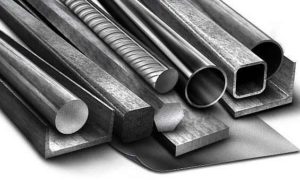The EU imposed anti-subsidy duties on imports of stainless steel cold-rolled flat products originating in Indonesia and also India. With Indonesia at the forefront, the EU is countering the highly trade-distorting export restrictions on key raw materials — linked also to Chinese financing.
 Additionally, the EU is taking action against preferential financing provided by China to Indonesia, as part of a complex subsidy arrangement designed for export to the EU. Without this remedial action, the EU’s ability to produce stainless steel cold-rolled flat products essential for construction, energy equipment, infrastructure, consumer goods, and vehicles would be in jeopardy.
Additionally, the EU is taking action against preferential financing provided by China to Indonesia, as part of a complex subsidy arrangement designed for export to the EU. Without this remedial action, the EU’s ability to produce stainless steel cold-rolled flat products essential for construction, energy equipment, infrastructure, consumer goods, and vehicles would be in jeopardy.
Valdis Dombrovskis, Commission Executive Vice-President, responsible for trade said: “Today we are taking action to counter unfair state-sponsored subsidies in Indonesia and also India that directly hurt our workers and companies in this vital industrial sector. This is a flagship case, because in this investigation we are also addressing complex Chinese transnational subsidy schemes with third countries that directly threaten our industry. Subsidies involving export restrictions are among the most distortive because they massively bring down the cost of raw materials in the exporting country—and directly undermine fair competition with EU companies. This calls for our robust response to level the playing field, in line with WTO rules.”
While WTO members have the right to develop their steel industry and exploit their raw materials reserves, they cannot do so in contravention of international trade rules. The measures imposed on stainless steel cold-rolled flat products from India and Indonesia today underscore the EU’s determination to use trade defence instruments to their fullest extent to capture and counter new forms of trade distortive practices. The anti-subsidy duties have been set at 7.5% for India and 21% for Indonesia. They come on top of anti-dumping duties imposed in November 2021, which range between 13.9% and 35.3% for India, and between 10.2% and 20.2% for Indonesia. Combined, these duties bring the level of protection for the EU steel industry to above 40%, thereby countering the unfair advantage that these trade distortive practices give to the imported steel products from Indonesia and India.
Background
Tackling increasingly complex subsidy arrangements between third countries is crucial for the survival of the EU industry. In this case, Indonesia, one of the world’s major producers of nickel ore, wanted to maximise the value of this scarce raw material by developing a domestic downstream industry rather than simply exporting it. Given the magnitude of the required investment, Indonesia enlisted China to set up such an industry using Chinese preferential financing under China’s Belt and Road initiative. In return, Indonesia assured China’s access to nickel ore at cheap prices through a complex system including export restrictions. The EU industry was impacted not only by imports of subsidised stainless steel, but also by the complete closure of the Indonesian market as a source of nickel ore for its own stainless steel production.
This is the second time that the EU takes action to address cross-subsidisation by China. In June 2020, the EU took action to tackle this innovative form of subsidisation by China to Chinese companies and joint ventures established in special economic zones in Egypt, producing glass fibre fabrics (GFF) and glass fibre products (GFR)
Indonesian export restrictions of raw materials are also being tackled by the EU in a broader dispute settlement case at the WTO.
In addition to the anti-subsidy measures imposed on India and Indonesia today, the EU currently also has anti-dumping measures in place against imports of stainless steel cold-rolled flat products from China and Taiwan. The duties range between 24.4% and 25.3% for China and between 0% and 6.8% for Taiwan.
For more information
Anti-Dumping Measures on Stainless Steel Cold-Rolled Products from India and Indonesia